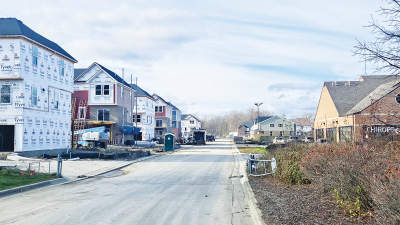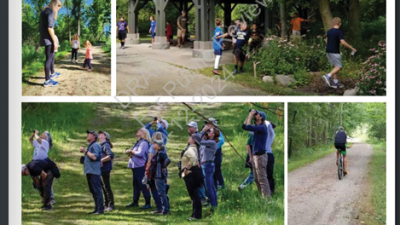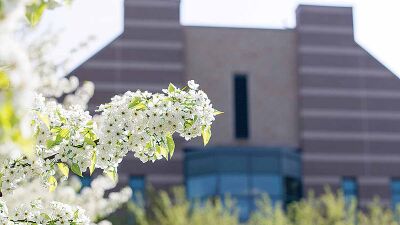ROCHESTER — Oakland University will establish the OU Center for Environmental Sustainability and Ethics, thanks to a $1 million gift from the Oakland University Credit Union.
“OU is well-positioned to be a catalyst in developing education programs, research and policy recommendations as communities learn how we can work together to create a sustainable society and planet,” OU Credit Union President and CEO April Clobes said in a statement.
The $1 million gift provides vital funds for the expansion of the university’s sustainability initiatives, according to OU President Ora Hirsch Pescovitz.
“We are stewards of our resources, and responsible for making sure we continue to develop our communities so all people can enjoy economic opportunities and the highest possible quality of life,” she said in a statement.
Mike Westfall, the vice president of university advancement at Oakland University, said the gift will provide seed funding for the creation of a Center for Environmental Sustainability and Ethics, a director of sustainability position, and the schematic design of a potential “living building” as a part of the Living Building Challenge.
The Center for Environmental Sustainability and Ethics will work to advance sustainability initiatives in five major areas — academics, campus operations, biodiversity and green space, community and public engagement, and fiscal responsibility.
The director of sustainability position will help the university navigate and enhance sustainability.
“If you want accountability in anything, you need someone who is going to think about things 24/7, so that director position is absolutely important,” Westfall said.
The schematic design for a proposed living building, according to Westfall, will provide the vision of what it would look like, the programming, and where it would be located.
“Ultimately, a living building produces net energy, so at the end of the year, it will produce more energy than it will need. If you think about LEED Platinum (certified), this is that on steroids,” he said of Leadership in Energy and Environmental Design certifications. “There is a pretty rigorous certification process.”
If the university ultimately decides to construct a living building, it would be the first one on a university campus in the state.
Pescovitz said collaboration and ongoing input from faculty, staff, students and the university’s facilities management team are keys to the success of the university’s sustainability initiatives.
In January 2021, a preliminary assessment tracked the university’s sustainability practices in the areas of academics, research, facilities, utilities, energy, waste management, biodiversity, food and dining, institutional investments, transportation, well-being, and work.
Last spring, Oakland University and Oakland County formalized a partnership that called for utilizing faculty experts in the development of a countywide sustainability plan. The county is in the process of hiring a consultant to oversee the plan.
Until now, sustainability efforts on campus have been promoted by the Campus Alliance for Sustainability and the Environment, the facilities department, and the Student Congress.
The OU Credit Union investment, officials said, allows for enhanced coordination of campus efforts within a strategic framework whereby the university’s progress in a range of sustainability areas can be measured and eventually earn accreditation from the Association for the Advancement of Sustainability for a comprehensive campus sustainability rating system.
For the past six months, the sustainability strategy team has developed a framework that calls for input from faculty, students and staff throughout the process.
Modeling sustainable practices in universities is important, according to Westfall.
First, he said, universities have a significant impact on the environment due to their large carbon footprint and resource consumption.
“By adopting sustainable practices, universities can reduce their impact on the environment and promote a culture of sustainability,” Westfall said.
By modeling sustainable practices, universities can instill in their students a sense of environmental responsibility and prepare them to address the challenges of sustainability in future careers.
“I really believe students are responsible for educating the next generation of leaders and professionals in all professions,” he stated.
Additionally, by modeling sustainable practices, the university can serve as role models for other organizations and communities in the area.
“I think we can demonstrate that sustainability is not only important, but also achievable, and inspire others to take action toward a more sustainable future, Westfall said.
Updates and details of the university’s sustainability initiatives can be viewed at oakland.edu/sustainability.
 Publication select ▼
Publication select ▼






















